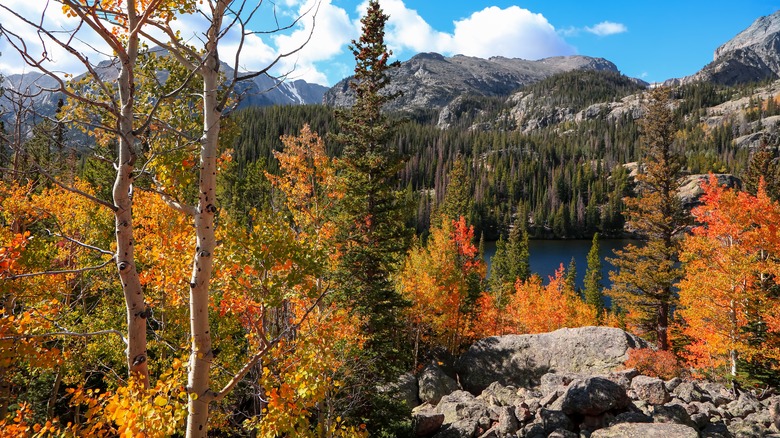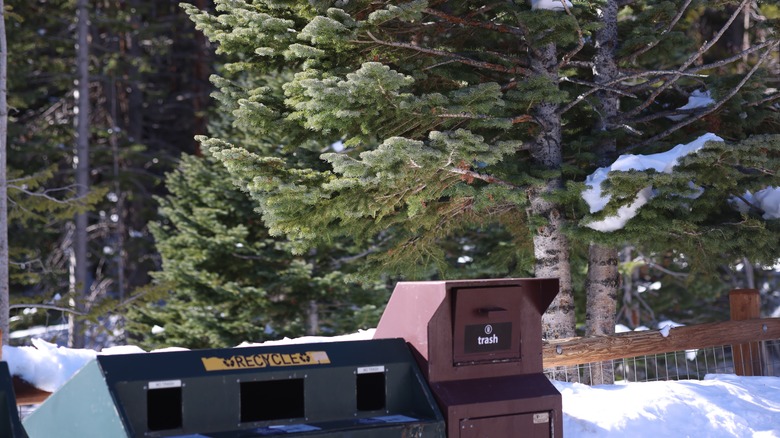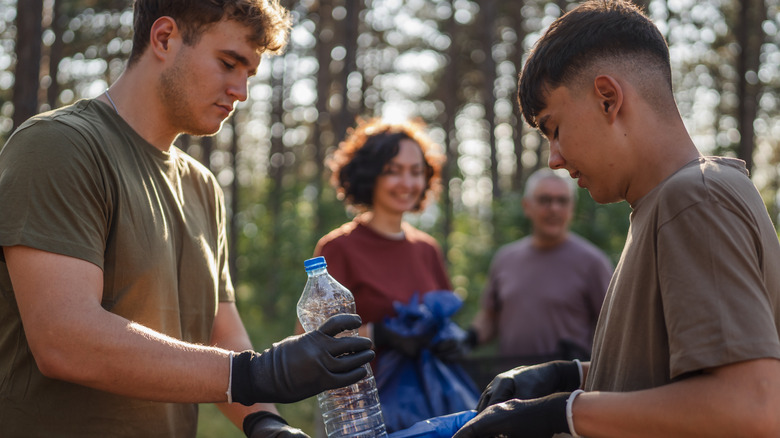Here's How Rocky Mountain National Park Stays Clean Without Rangers Through The Government Shutdown
Because our national parks are maintained by the federal government, government shutdowns can cause major disruptions. The worst may be that more than 9,000 vital park staff, including park rangers, are furloughed. The current administration has made the controversial decision to keep some national parks open to the public despite many of the parks' caretakers being sent home without pay. As Rocky Mountain National Park transforms into a vibrant fall haven, visitors continue to flood in. No longer do tourists have to worry about how to make a trip to this national park affordable — there's no one there to collect entrance fees. There's no denying it: This park is in chaos, and the spectacularly beautiful landscape it protects is at risk. However, some are stepping up to keep this beloved place clean: Volunteers.
Vital volunteers from the organization YMCA of the Rockies have been visiting Colorado parks, including Rocky Mountain National Park, in groups to clean up trash while the government shutdown leaves parks understaffed and vulnerable to damage from irresponsible visitors. These volunteers hike around their chosen area (typically the Glacier Basin Campground) and pick up litter left behind in the park. While all official volunteer programs are paused or canceled during government shutdowns where there aren't enough actual National Park Service employees to run them, that hasn't stopped YMCA of the Rockies from holding these park cleanup days. Because no one knows for sure how long the government shutdown will last, as it continues, the need for unofficial volunteers to staff our national parks will only increase.
Why are volunteers needed to keep national parks clean during shutdowns?
While there's no replacing trained and seasoned National Park Service rangers, U.S. national parks need all the help they can get when they are open without the protection and care of staff. As outlined in a letter signed by 38 former national park superintendents formally requesting that parks be fully closed to the public during the government shutdown (via The Coalition to Protect America's National Parks) in a prior shutdown, national parks that stayed open were seriously damaged. Natural habitats were destroyed, there was severe vandalism, and historical artifacts were stolen from parks around the United States. Trash, litter, and sanitation got so bad in some parks that they were dangerous for visitors.
That, at least, is one issue that motivated volunteers like those from the YMCA of the Rockies to step in. While there is technically still trash pickup from designated trash cans in the park during the shutdown, it's not surprising that it becomes overwhelming quickly. There is a lot of garbage being generated in national parks — around 100 million pounds every year. Typically, extra litter is collected by official National Park Service volunteer programs, but during the shutdown, those programs are paused. With less supervision, full trash cans, and fewer official volunteers cleaning up, things can get messy fast.
What can volunteers do to keep Rocky Mountain National Park clean?
If you can't wait to visit Rocky Mountain National Park until this gem for outdoor adventures has enough staff to keep it safe, at an absolute minimum, don't make avoidable mistakes while visiting this national park. Make sure to leave no trace, pack out all the trash you bring into the park (that also means not tossing it into overflowing trash cans that may not be emptied any time soon), and obviously, don't steal or damage anything in the park.
If you want to go beyond not making things worse and instead help make things better, consider signing up for the YMCA of the Rockies cleanup day, or simply bring gloves and a trash bag on your hike and pick up any litter that others have left behind. If you see someone accidentally making the park dirtier, kindly let them know and offer to help. If you witness someone intentionally damaging or stealing from the park, report it to park staff. While there aren't enough people to patrol and protect the park, they should still be able to respond to reports.


